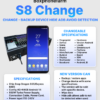In the digital age, the allure of “free” is powerful. From software to entertainment, we’re conditioned to seek out no-cost options. This instinct naturally extends to tools designed for online privacy and security, like proxies and Virtual Private Networks (VPNs). But this convenience comes with a critical question that demands an honest answer: when a service that’s supposed to protect you costs nothing, what is the real price you’re paying? This article is designed to educate you on the inherent risks of “free” services and build a solid case for why investing in a paid solution is a necessary measure to protect your digital security and privacy.
1. The “Free” Model: If You’re Not Paying, You Are the Product
There’s a timeless adage in the tech world: “If you are not paying for the product, then you are the product.” This has never been more true than in the context of free VPN and proxy services. Running a network of servers around the world requires significant financial investment in hardware, bandwidth, and maintenance. A provider offering these services for free must generate revenue somehow. Unfortunately, their business model often directly conflicts with the very reason you sought their service in the first place: privacy.
They typically make money in a few concerning ways:
- Data Harvesting and Selling: This is the most common and invasive method. Free providers often monitor, log, and collect your browsing data—the websites you visit, the duration of your sessions, your search queries, and even more sensitive information. This data is then packaged and sold to third parties, such as advertisers, data brokers, and market research firms.
- Ad Injection: Some free services inject advertisements directly into your web browser. These aren’t just annoying pop-ups; they can be intrusive banners and trackers that follow you across the internet, further compromising your privacy and slowing down your browsing experience.
- Bandwidth Selling: In a particularly deceptive model, some providers turn their users into a botnet. They sell your device’s idle bandwidth to other clients, effectively creating a peer-to-peer proxy network. This means other people are using your IP address for their activities, which could range from harmless browsing to illicit operations, putting you at risk.
2. The High Price of Free: Unpacking the Risks
Choosing a free service isn’t just a compromise on quality; it’s an active risk to your digital well-being. The trade-offs you make can have serious consequences for your security, privacy, and overall online experience.

2.1. Non-Existent or Compromised Security
The primary function of a VPN is to encrypt your internet traffic, creating a secure tunnel that protects your data from prying eyes. Many free proxies do not encrypt your traffic at all, offering a false sense of security. Even worse, some free VPNs and proxies are deliberately malicious. They are set up by attackers to perform “man-in-the-middle” attacks, intercepting your data to steal sensitive information like passwords, credit card numbers, and private messages.
2.2. Severe Privacy Violations
The entire purpose of using a privacy tool is to prevent logging and tracking. Yet, the business model of most free services depends on it. They often maintain detailed logs of all user activity, including your original IP address, the websites you visit, connection timestamps, and bandwidth used. By selling this information, they completely nullify the privacy you thought you were gaining. Your online footprint isn’t being erased; it’s being sold to the highest bidder.
2.3. Dreadful Performance and Reliability
Free servers are almost always overcrowded, with thousands of users competing for limited bandwidth. This results in an incredibly poor user experience defined by:
- Extremely Slow Speeds: Streaming videos becomes a buffering nightmare, downloads take forever, and even simple web browsing can feel sluggish.
- Frequent Disconnections: Unstable connections that drop without warning are common, leaving your traffic suddenly exposed.
- Blacklisted IP Addresses: The IP addresses provided by free services are often abused and, as a result, get blacklisted by major websites and services like streaming platforms, online banking portals, and social media networks. You may find yourself blocked from the very sites you want to access.
2.4. A Void of Support and Transparency
When a free service fails, causes a data leak, or compromises your security, you have no one to turn to. There is no customer support team to contact and no accountability from the provider. Their terms of service are often vague, and their ownership can be obscure, leaving you completely in the dark about who has your data and what they’re doing with it.
3. Investing in Your Digital Fortress: The Benefits of Paid Proxies and VPNs
When you transition from a free to a paid service, you’re not just buying a product; you’re investing in a professional security solution. Paid providers have a clear business model: they offer a robust service in exchange for a subscription fee. Their reputation and revenue depend on fulfilling their promises of security and privacy.
3.1. Robust, Ironclad Security
Paid providers are at the forefront of security technology. They offer military-grade AES-256 encryption, the same standard used by governments and security experts worldwide. Crucially, reputable paid services adhere to strict no-logs policies, meaning they do not track or store any information about your online activities. Many of the top providers even subject their policies to independent, third-party audits to prove their claims, providing a level of trust that free services can never match.
3.2. Superior Performance and Stability
Because their business relies on customer satisfaction, paid providers invest heavily in their global network infrastructure. They maintain a vast network of high-bandwidth servers across the globe. This ensures you get a fast, stable, and reliable connection every time, whether you’re streaming in 4K, engaging in online gaming, or running large-scale automated tasks for your business.
3.3. Advanced Features and Dedicated Support
Paid subscriptions unlock a suite of powerful features designed for maximum protection and usability. These often include:
- Kill Switch: An essential feature that automatically cuts your internet connection if the VPN drops, preventing any accidental data leaks.
- DNS Leak Protection: Ensures that your DNS queries are routed through the encrypted tunnel, keeping your browsing activity completely private.
- 24/7 Customer Support: If you encounter any issues, a dedicated support team is available around the clock to provide assistance and resolve problems quickly.
Conclusion: Your Digital Privacy is an Investment, Not an Expense
The debate of free vs paid vpn is less about cost and more about value and risk. While “free” carries an immediate appeal, the hidden costs—in the form of compromised security, violated privacy, and poor performance—are far too high. The “free” model is fundamentally built on monetizing the user, which is a direct contradiction to the principles of digital privacy.
For casual users and especially for professionals in the MMO, digital marketing, and business sectors, a secure and reliable connection is non-negotiable. Investing in a reputable, paid VPN or proxy service is the only way to guarantee that your data remains yours. This foundation of security is essential for everything from protecting personal information to running complex automation scripts without fear of blacklisted IPs or data interception.
At GenFarmer, we understand the critical need for professional-grade tools. While we focus on automation, the bedrock of any successful digital operation is a secure and stable network. That’s why we champion robust solutions, including our powerful Router Proxy hardware designed to manage and scale your secure connections effectively. Don’t compromise on your digital safety. Explore the professional solutions at GenFarmer.com and build your operations on a foundation of trust and security.











